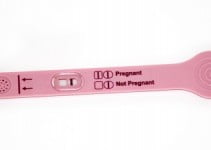
Many opinions exist on the subject of what is or is not safe to do and eat during pregnancy. The opinions can vary from person to person, so it’s often difficult to get a definitive answer relating to a particular food or action. One food that is often debated is pineapple.
You may have heard old wives tales that warn pregnant women of early labor and even miscarriage brought on by eating too much pineapple.
You may also know women that have tried to induce labor in their 39th or 40th weeks of pregnancy when they’ve decided they’ve had enough.
However, there are no actual studies to back up either of these theories. In fact, most doctors agree that pineapple (and most fruit) is perfectly safe during pregnancy and will not cause you to go into labor early, or at all.
Risks of Eating Pineapple During Pineapple
Pineapple probably got its bad reputation for expecting mothers due to the fact that it contains bromelain, which can break down proteins and lead to abnormal bleeding when produced in the form of potent tablets containing the enzyme in high amounts.
However, the amount of bromelain to bring on this effect is far greater than what is found in a single pineapple. Actually, one would have to consume seven to ten pineapples to come close to the dangerous level of bromelain that’s found in bromelain tablets.
While eating pineapple isn’t necessarily dangerous for pregnant women, it can lead to acid reflux and can cause discomfort if too much is eaten in a short amount of time, so it would be wise to eat small amounts at a time until you know how your body will react. The acidic juice can also cause mouth sores if eaten in large amounts.
Benefits of Eating Pineapple During Pregnancy
Fruit is a vital part of a healthy diet, especially during pregnancy. Fresh pineapple, canned pineapple, and even pineapple juice are all perfectly safe for pregnant women and actually offer many vitamins and minerals that lead to a vibrant pregnancy. A serving size of one cup once or twice per week is a good suggestion for women during pregnancy.
Eating pineapple during pregnancy gives you about 79 milligrams of vitamin C per cup. This vital nutrient helps the production of collagen, which helps in the growth of your child’s bones, cartilage, and tendons.
It also contains iron, which is key to the production of blood. Also, consuming fruit helps your body’s digestive system stay regular and therefore aids in the avoidance of constipation.
Conclusion
Pineapple can be a healthy addition to pregnancy and can be enjoyed without the fear of early labor or miscarriage despite common beliefs otherwise.
Unfortunately, this also means eating a pineapple won’t help anxious mothers who are deliberately trying to induce labor with an overdue baby.
If you’re still concerned about the safety of pineapple during pregnancy, you should consult your doctor and then follow their advice with peace of mind.
Photo: Pixabay.com
References



